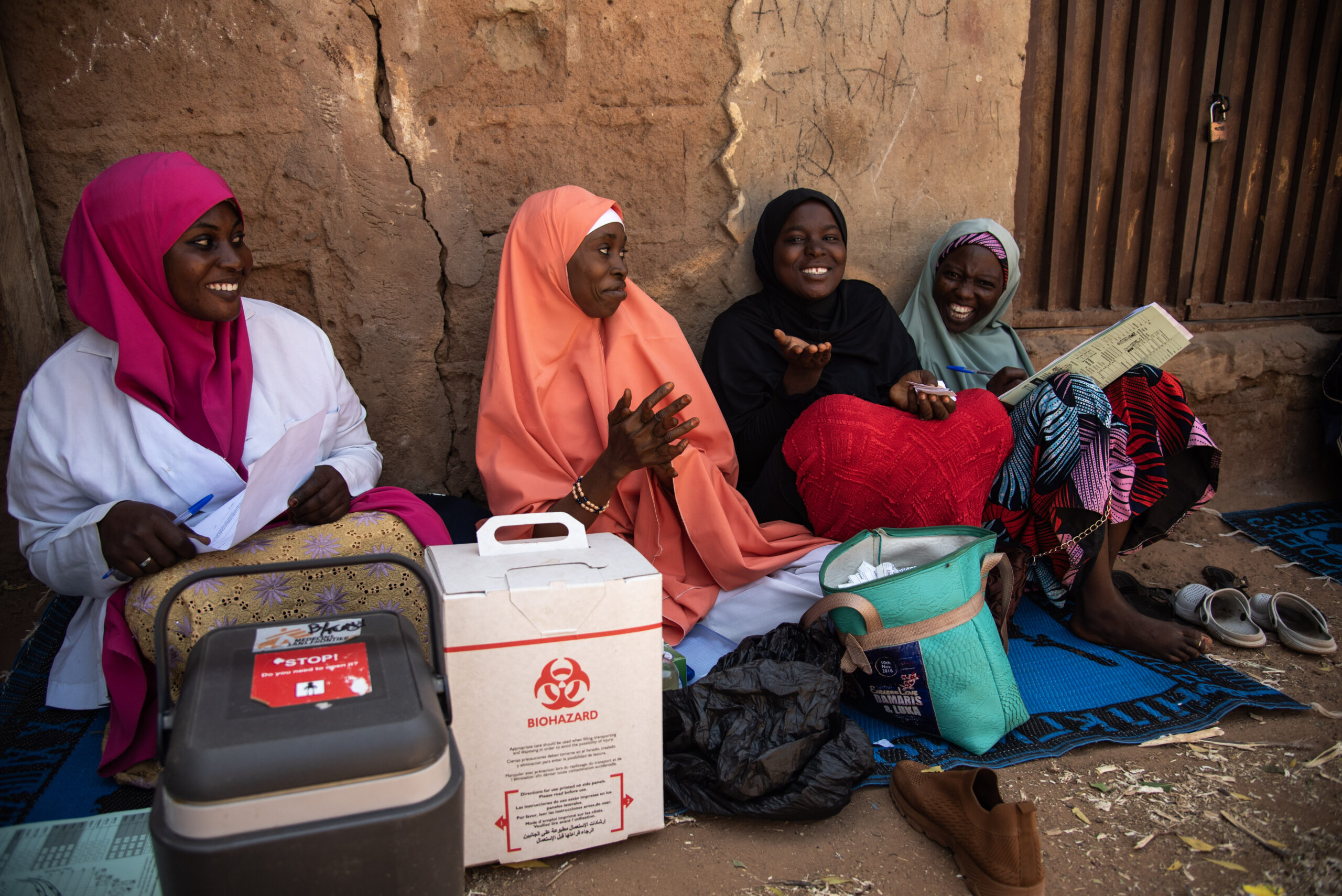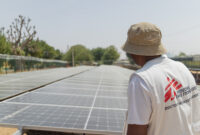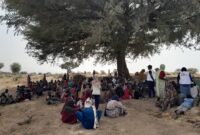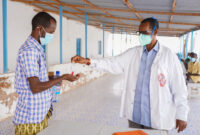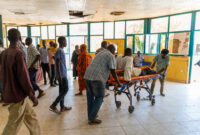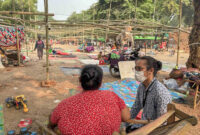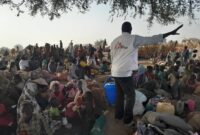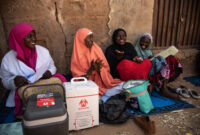Nigeria: MSF and Sokoto state launch vaccination campaign to reduce deadly diseases
Healthcare collaboration offers essential vaccines
Doctors Without Borders/Médecins Sans Frontières (MSF), in partnership with the Sokoto state Ministry of Health, is encouraging community members in Sokoto to participate in a vaccination campaign – the goal is to help reduce the number of children suffering from potentially fatal diseases including measles and diphtheria. These diseases can cause long-term complications if contracted. In 2024, in Nigeria, MSF treated over 17,000 cases of measles, which, if left untreated, can cause pneumonia or brain damage in some severe cases. The campaign aims to immunize children under five years old using a measles vaccine and the Penta-5 vaccine, which protects against diphtheria, tetanus, hepatitis B, whooping cough and haemophilus influenzae type b. MSF is also offering catch-up vaccines for children who may have missed their recommended doses of vaccines for polio, rotavirus and tuberculosis, among others.
The campaign is underway in Sokoto North, Sokoto South, Wamako, and Dange Shuni local government areas (LGAs). Additionally, there are catch-up routine vaccinations taking place at four facilities in rural communities of Wamako, and five facilities each in Dange Shuni and Bodinga LGAs.
In the first round of the vaccination exercise that started in early November 2024, close to 53,100 children were vaccinated across six LGAs in Sokoto state. Among these, over 33,600 children, around 63 per cent, had not received any vaccine doses prior to this campaign. This stage of the campaign will run until late February.
“This exercise is very important because measles is extremely contagious and especially dangerous for young children, particularly those suffering from malnutrition or other medical issues.”
Ahmad Bilal, MSF country director in Nigeria
“We are committed to collaborating with the government to ensure every child is vaccinated against these deadly diseases,” says Ahmad Bilal, physician and MSF country director in Nigeria.
Measles has become endemic in many parts of northern Nigeria, with repetitive spikes, causing public health consequences. This disease is closely linked to malnutrition due to its harmful effects on the gastrointestinal lining. This damage increases a child’s risk of malnutrition, which in turn weakens the immune system, making them more susceptible to other vaccine-preventable diseases. This cycle can create lasting impacts on the child into adulthood and can even be fatal.
“This exercise is very important because measles is extremely contagious and especially dangerous for young children, particularly those suffering from malnutrition or other medical issues,” says Ahmad Bilal.
“As a result of the two rounds of vaccination, we have already seen a decline of about 57 per cent of measles cases at the Gummi General hospital between June to December 2024 compared to the same period in 2023.”
Deo Kabila, MSF medical coordinator in Nigeria
In 2024, MSF teams working in Gummi, Zamfara state in North West Nigeria, conducted a multi-antigen vaccination campaign to protect children against vaccine-preventable diseases like measles and other critical child vaccines. With the support of the Zamfara state government, the campaign reached more than 51,300 children in vulnerable situations during the two rounds of vaccination exercise. Twenty six per cent of these children did not have any previous vaccines.
“Vaccines are essential for preventing and controlling outbreaks of infectious diseases,” says Deo Kabila, physician and MSF medical coordinator in Nigeria. “As a result of the two rounds of vaccination, we have already seen a decline of about 57 per cent of measles cases at the Gummi General hospital between June and December 2024, compared to the same period in 2023.”
According to the 2021 Multiple Indicator Cluster Survey, Nigeria’s immunization coverage remains low, with at least 6.2 million children missing all their vaccines in the past five years. Overall, Nigeria is still far from achieving the 95 per cent vaccine coverage rate recommended by international health authorities.
To improve the success of the vaccination campaigns, MSF is collaborating with community and religious leaders to raise awareness about the importance of vaccination. Multiple vaccination sites have been established, and door-to-door mobilization efforts have been implemented to ensure every child has the opportunity to receive vaccinations.
“Community leaders have been very supportive, granting us access to their communities,” says Juliet Umenge, MSF health promotion manager for routine immunization in rural areas.
